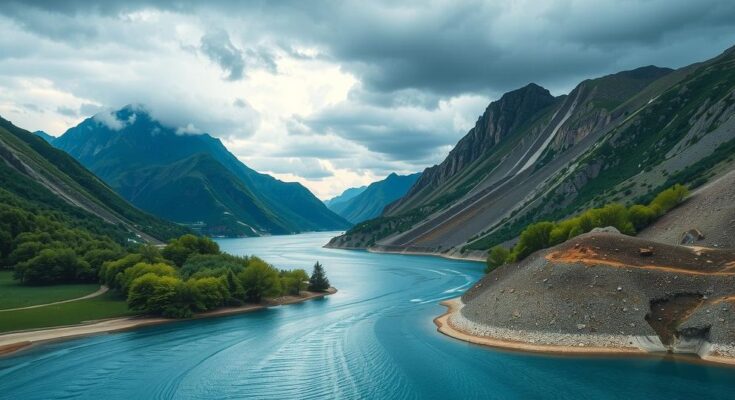Rwandan President Paul Kagame rebuked South African President Cyril Ramaphosa for accusations of Rwandan support for M23 rebels in the Democratic Republic of Congo. Ramaphosa’s claims followed the deaths of South African soldiers amid the conflict. Tensions escalated as Kagame warned of potential confrontation, while South Africa highlighted Rwanda’s alleged backing of the M23 militia, complicating peacekeeping efforts in the region.
Rwandan President Paul Kagame criticized South African President Cyril Ramaphosa following accusations that Rwanda supports the M23 rebels, who are involved in the intensifying conflict in eastern Democratic Republic of Congo. Kagame claimed Ramaphosa is “lying” and highlighted the potential for “confrontation” between their nations.
South Africa contributes troops to the ongoing U.N. peacekeeping mission in the Democratic Republic of Congo and a separate Southern African Development Community operation to support Congolese forces against insurgents. Following the recent deaths of 13 South African soldiers linked to rising violence from the M23 militia, Ramaphosa expressed accountability toward Rwanda for the casualties.
In a written statement, President Ramaphosa attributed the deaths to the M23 and described them as a “Rwandan Defense Force militia.” Defense Minister Angie Motshekga emphasized the seriousness of the situation, indicating that provocative actions taken by the M23 could be perceived as a declaration of war.
Kagame contested these claims in a statement on social media, asserting that the Rwandan Defense Force operates as a conventional army, not a militia. He further criticized Ramaphosa’s interpretation of the South African forces’ role and described their involvement as engaging in “offensive combat operations.”
South African Foreign Minister Ronald Lamola has attributed the M23’s activities to Rwandan support, citing reports from U.N. experts as evidence of Kigali’s involvement. He affirmed South Africa’s commitment to advocating for a ceasefire and cessation of hostilities through engagements like the recent African Union meeting regarding the crisis.
The eastern Democratic Republic of Congo, rich in minerals but historically marred by conflict, has faced turmoil for over three decades, exacerbated by the aftermath of the 1994 Rwandan genocide. The Congolese government has expressed concerns regarding Rwanda’s interest in the region’s natural resources amidst claims that Rwandan refugees represent a security threat.
The ongoing conflict in eastern Democratic Republic of Congo is deeply rooted in decades of violence and instability, tracing back to the consequences of the 1994 Rwandan genocide. This historical backdrop has shaped the current geopolitical tensions, particularly between Rwanda and South Africa. The critical involvement of the M23 militia in recent escalations, coupled with accusations of Rwandan support, underscores the complexities facing regional peace efforts. Moreover, the mineral wealth of eastern Congo continues to be a focal point in the conflict, attracting foreign interests and complicating diplomatic relations.
The war of words between Presidents Paul Kagame and Cyril Ramaphosa highlights the rising tensions between Rwanda and South Africa amid the ongoing crisis in eastern Democratic Republic of Congo. With accusations of Rwandan involvement in supporting the M23 militia and South Africa’s role in peacekeeping, the situation remains precarious. Both nations must navigate these disputes carefully to prevent further escalation and maintain regional stability.
Original Source: www.voanews.com




